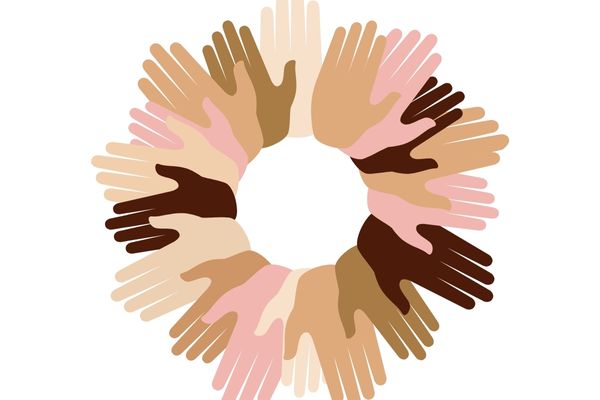Deadline: 18-Sep-23
If you have an innovative idea or a project that can make a positive change in the lives of minorities around the world, then this call is for you!
Minority Rights Group Europe (MRGE), along with PILnet, has partnered together on the MARIO project to build a supportive environment for grassroots Civil Society Organizations (CSOs) engaged in the promotion and protection of EU values across Bulgaria, Poland, Slovakia, Hungary, Croatia, Latvia, Czech, Estonia, Lithuania, Romania and Slovenia.
Objective
- They aim to select, provide financial support, and build the capacity of rural, grassroot, minority CSOs representing vulnerable minority groups, with annual grants to advance the protection and promotion minority rights and awareness of EU fundamental rights and values.
- Minority: They build a supportive environment for CSOs engaged in minority inclusion and rights: minorities that are of concern to MRG are defined as disadvantaged ethnic, national, religious, linguistic or cultural groups.
- Grassroot: In order to increase the resilience of grassroot CSOs, MRG would prioritize organizations with the annual turnover under 125K euros.
- Rural: They are seeking to support organizations in underdeveloped regions.
Funding Information and Duration
- Project budgets must be EUR 15,000 – not more and not less.
- Projects must be implemented between 1st of January 2024 and 30th November 2024.
- The maximum project duration is 11 months.
There is more to the partnership than only the grant
- MRGE and PILnet will organize one central training for grantees each year, focusing on EU mechanisms and opportunities. This training will serve as a time for grantees to exchange experiences with other grantees of the same year.
- With Liaison Officers’ support, grantees will be able to seek pro bono legal advice through local clearinghouses where available or help to translate their requests and submit them to PILnet Global Clearinghouse.
- Grantees will have access to international mobile units of experts, or CSO Shields, as needed. Experts will assist minority CSOs in analysing available information, and designing tailor-made responses and solutions.
- At the end of the project, a research will be conducted, and a final study measure the change in the situation of civic space, and assess the long- and medium-term effects of the MARIO project.
- Annual exchange meetings will be followed by advocacy meetings for selected grantees in Brussels where they will meet relevant EU decision makers.
- A long-lasting network of grantees alumni will have access to funding opportunities. The grantee alumni network will be a platform for exchange as well as information and opportunities.
- Annual exchange meetings will be followed by advocacy meetings for selected grantees in Brussels where they will meet relevant EU decision makers.
Eligible Activities
- Local accountability projects i.e., problem-solving workshops and dialogues in the topics of community vs. local authority
- Activities that investigate, address, or publicize gaps or failures in the rule of law
- Projects that contribute to democratic participation, including civic responsibility education projects, and advocacy with local authorities or relevant political parties for inclusion of minorities
- Legal capacity projects and campaigns that build communities’ legal capacity to access justice mechanisms to achieve their rights i.e., direct legal advice, mediator training, legal support involving violation of the rights of minorities.
- Local advocacy projects and campaigns that give voice to local minority (and majority) concerns and support policy changes to address challenges and failings.
- Watchdog and monitoring activities
- Organisation of civic platforms and civic dialogues linked to rights, coalitions and partnerships among CSOs and minority CSOs
- Research, data collection, producing evidence/reports for advocacy, strategy and planning meetings, monitoring and publications to influence local policy and decisionmaking
- Trainings of community members on their rights and/or anti-discrimination measures
- Creative communications campaigns, and awareness raising initiatives.
- School activities and awareness raising to minority youth on their rights
Eligible Countries
- The program countries in 2024 are: Bulgaria, Poland, Slovakia, Hungary, Croatia, Lithuania.
Eligibility Criteria
- In ordered to be considered eligible, organizations interested in applying must:
- be registered legal entities in the 2024 program countries, to be non-profit making organisation or civil society organisation, have a bank account, be established and active in the target countries;
- prove having no public debt, comply with GDPR, anti-corruption measures and prove absence of conflict of interest;
- demonstrate their commitment and compliance to EU fundamental rights and values;
- have a balanced gender composition or community members represented within their internal leadership and team structure (desirable, not mandatory);
- be a small, local, rural, grass-root CSO representing the rights of minority and vulnerable groups, including minority/community led organisations, and have a close working relationship with and the trust of one or more disadvantaged ethnic, religious or linguistic community (including migrants and refugees); they also encourage projects that amplify marginalized voices within minority groups.
- be able to demonstrate basic project management skills;
- have strong links with relevant minority communities and have the means in place to remain in contact with and effectively consult and involve the community/ies they are working with.
- Note: own contributions are not expected, but it is possible to use the grant as match funding for a larger project.
For more information, visit Minority Rights Group Europe (MRGE).
